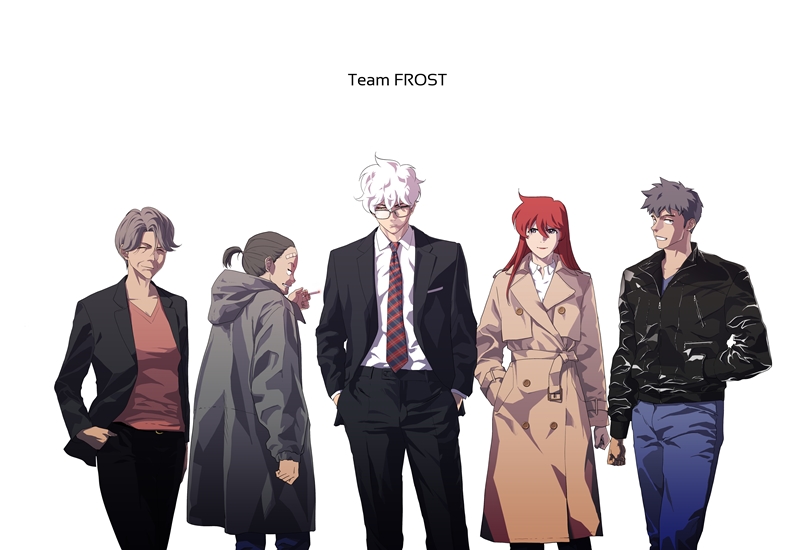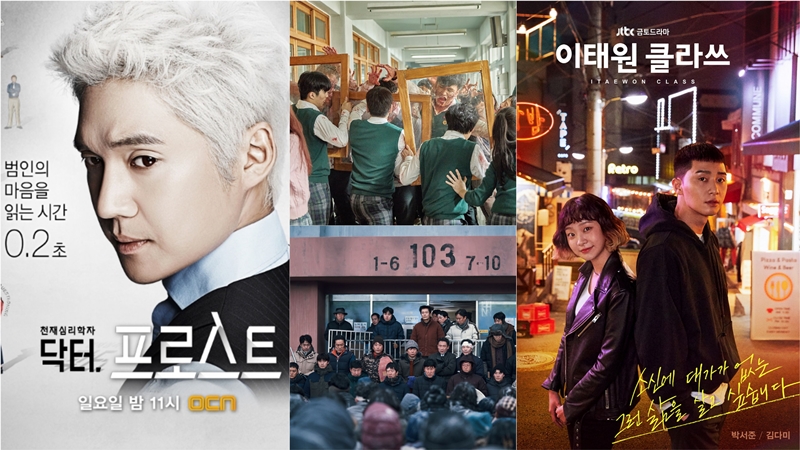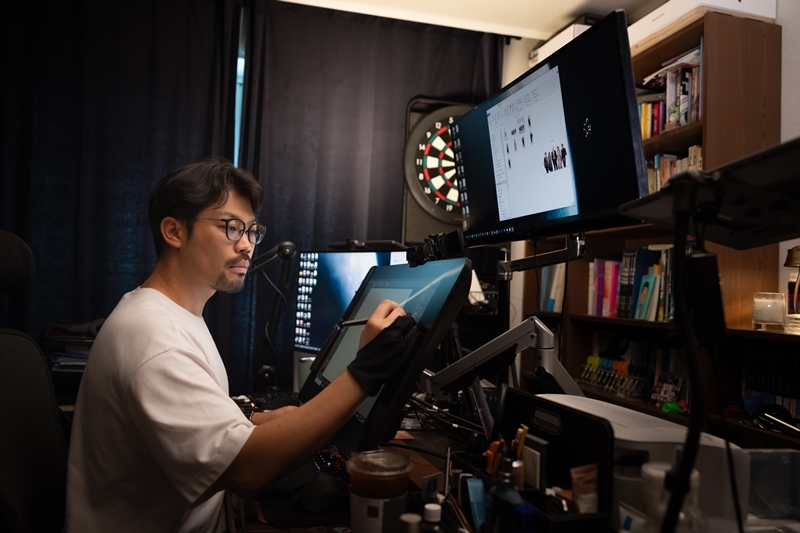By Lee Kyoung Mi and Kim Seon Ah
Video = Lee Jun Young
"I don't know what 'feeling' is."
"I might be unable to solve your problem but I can listen to it. In the end, everyone has their own story."
"Dr. Frost" is a webtoon about a genius but cold psychologist who uses a psychological approach to heal the scars of his patients. The series started in 2011 and ended in 2021.
Its creator Lee Jong-beom said, "The story is about the importance of knowing oneself," adding, "This was the core framework that ran throughout the decade."
In an interview with Korea.net on July 25 at his studio in Bundang-gu District of Seongnam, Gyeonggi-do Province, Lee said he was spending this period "inputting." Consuming works such as web novels, movies, games and webtoons, he said he tries to see what is moving the hearts of people.
Since he churned out "Dr. Frost" for 10 years, he seemed to pour much time and effort in preparing his next work.
"Dr. Frost," his leading creation, was a hit abroad and translated into 10 languages including English, Japanese, Chinese and Indonesian.

The protagonist Dr. Frost (third from right) and other leading characters are shown in this scene from the webtoon "Dr. Frost." (Lee Jong-beom)
"At first, I thought reader responses would differ by country but they weren't much different from their Korean counterparts," he said in expressing surprise over the global response to his webtoon.
Through comments, Lee said he discovered how foreign readers felt pain, cried and were moved by the same scenes as Koreans. "There are definitely parts where responses differ by nationality or culture, but I later realized that to create a good story, you need to add something that people can feel regardless of sex, age or culture," he added.
Studies show that Korean webtoons are popular abroad. The Ministry of Culture, Sports and Tourism and Korean Foundation for International Cultural Exchange announced the results of this year's survey on Hallyu (Korean Wave) abroad showing that the world's most consumed form of Korean cultural content is webtoons.
Citing the low entry barrier as the main factor behind the growth of domestic webtoons, Lee said conventional forms of pop culture and arts such as movies, plays and musicals require a certain level of capital and human resources but webtoons make it easy for artists to try if they simply think that their works are interesting.
The webtoon is a medium small enough for only the artist to take on risk, resulting in attempts at a range of subject matters and characters, he added.
The webtoonist also attributed the format's rapid development to its optimal suitability for mobile devices. "You can read it in just five minutes while waiting for the bus (on a smartphone)," he said. "Webtoons are a medium in which appreciation of art permeates every moment, and I think this is how it grew so quickly and dominated daily life."

Many webtoons have been turned into TV dramas or movies. Clockwise from left are posters for examples of this trend like the dramas "Dr. Frost," "All of Us Are Dead" and "Itaewon Class" and the movie "Concrete Utopia." (OCN, Netflix, Lotte Entertainment and JTBC)
Numerous webtoons have been adapted into TV dramas or movies, including the 2014 series "Dr. Frost." As the market for such adaptations grows, know-how in the sector is also growing as some adhere to an original work while others drastically alter the story to better fit the screen.
More webtoonists are directly writing the scripts for TV or film adaptations of their works including Gwang Jin for "Itaewon Class," Kim Bo-tong for "D.P." and Kang Pool for "Moving."
Lee welcomes webtoon adaptations as attempts to expand a story's potential in a myriad of ways. From the perspective of an original work's creator, he said he loves it when his story is reinterpreted and feels that the world of his work is understood.
On copyright violations, a threat to creators worldwide, he said the only solutions are stronger legal protection, efforts from content-providing platform services and higher user awareness, adding that all three of these actions must occur at the same time.
"I hope that this is recognized as a way to protect the very precious art form first created by Korea," he added.
"More people feel that it's shameful to read webtoons on illegal websites, companies are developing technologies to track piracy and legal crackdowns (on copyright violations) have appeared," he said, "But writers still cannot eat."

Webtoonist Lee Jong-beom says most in his field suffer from pain in the neck, back and hip, shoulders and wrist because of their job, as well as heavy pressure and psychological stress from reader responses. (Kim Sunjoo)
The word "K-webtoon" is "similar to saying K-kimchi," Lee said with a smile.
In a concluding message to aficionados of Korean webtoons, he added, "I believe that the true growth and globalization of webtoons will happen when people remember Korea as the birthplace of webtoons and webtoon readers abroad draw their own webtoons. If you enjoy webtoons, please draw them."
km137426@korea.kr
![[Interview with webtoonist ①] Showing dark side of humans](/upload/content/image/f3775531256e4abcad295ba723dfcd59_20230720074252.JPG)
![[Interview with webtoonist ②] 'Please draw as well as read webtoons'](/upload/content/image/16d70b129ed246d1a0105f690a05cd96_20230803135836.jpg)
![[Interview with webtoonist ③] Maanchwee adds unique 'senses' to her works](/upload/content/image/50041cf7ca3c4559b1a60252f7081add_20230814090914.jpg)